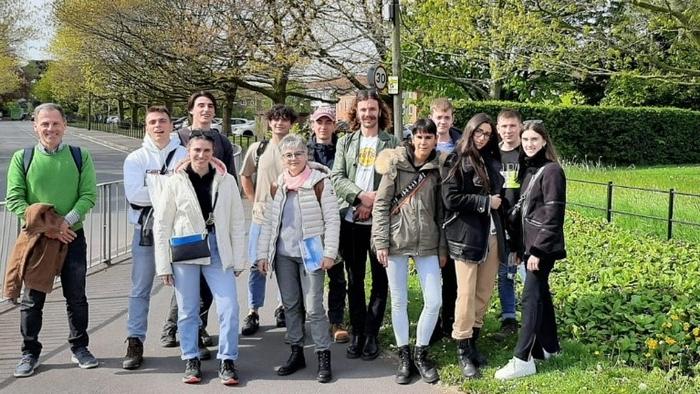Harper Adams University supports Pan-European AgTech education project
A project aimed at developing AgTech education across Europe to boost sustainable agricultural transitions is being backed by Harper Adams University.
The EU Erasmus+ LATEST project not only involves the Shropshire-based University, but also institutions in France, Austria, Germany and Italy.
It aims to boost the adoption of new agricultural technologies, which is currently below expectations in Europe – and which needs to encouraged to help development of sustainable innovation in agricultural practices across the continent and beyond.
As the project develops, its partner intuitions will develop a comprehensive and multidisciplinary academic program in AgTech, working to remove barriers in both the industrial and agriculture sectors which slow down the agricultural transition towards sustainability.
With current European educational initiatives on agricultural technologies scattered and fragmented, the LATEST project will take the teaching, learning and research at Universities like Harper Adams and work to share and develop its implementation across Europe.
Dr Mitch Crook, Taught Postgraduate Programmes Manager and Principal Lecturer at Harper Adams, said: “The LATEST Project, run jointly with Harper Adams and the University of UDINE in Italy, Unilasalle in France, BOKU in Austria, and Hohenheim University in Germany, aims to perform a deep analysis on both the actual situation and the future educational and skills needs in the sector to support a sustainable agricultural transition in the next 15 years.
“The project will then shape up-to-date academic programs to fill these identified gaps, taking also into account the most relevant EU policies as well as the existing initiatives and activities in the field of AgTech.”
Dr Paula Misiewicz, Senior Lecturer in Soil and Water Management, added: “As part of our work on LATEST, a group of agricultural students from the University of UDINE in Italy visited Harper Adams to learn about Precision Farming and AgTech.
“The students were very interested in our cutting-edge research in robotics, Precision Livestock and Crop Farming and technologies. They also enjoyed our applied way of teaching and learning and friendliness of students and staff.
“They went back to Italy with many good ideas and it was heartening to hear some are keen to purse their further education in AgTech as a result of their visit.”

